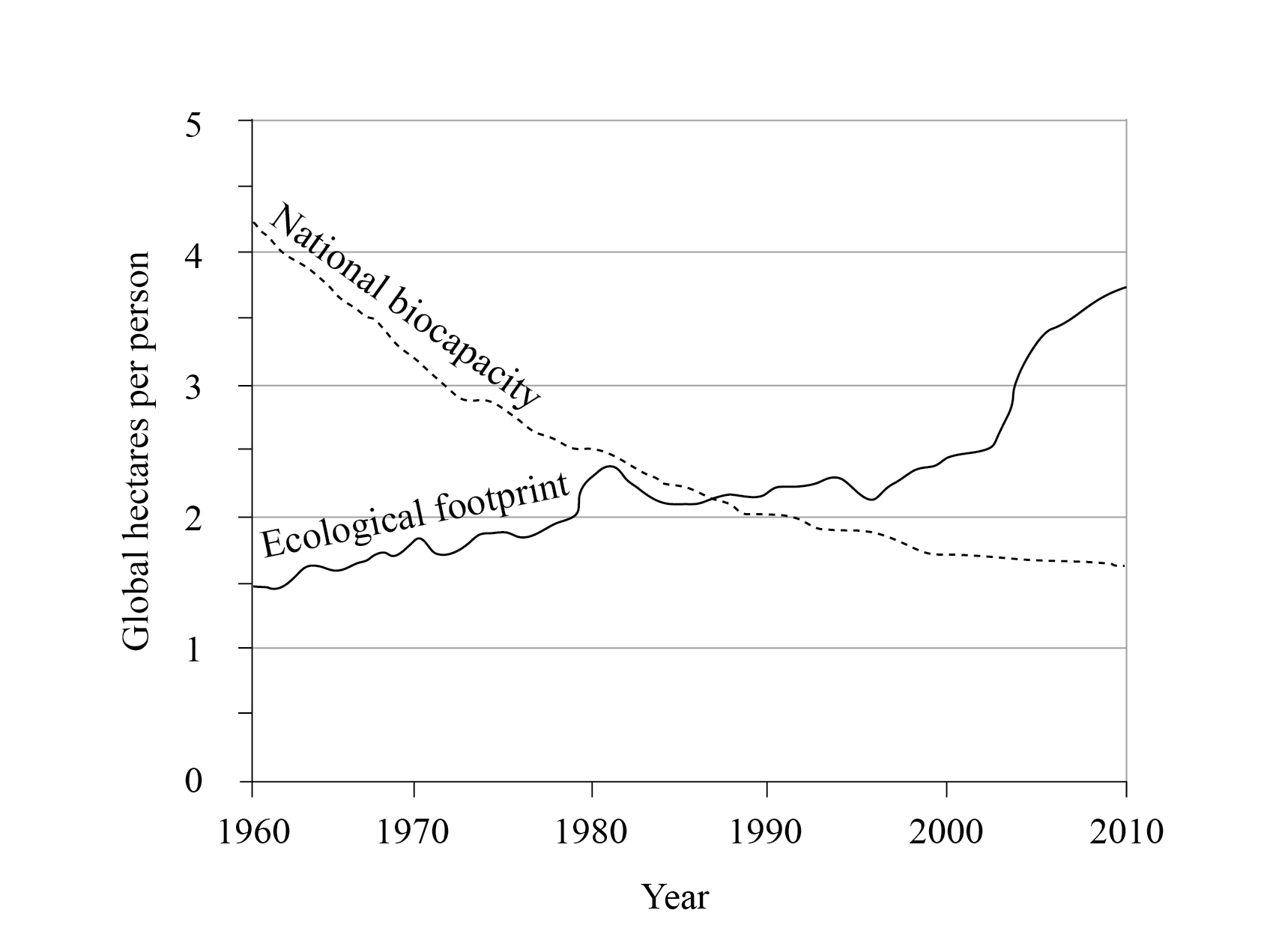| Date | May 2012 | Marks available | 3 | Reference code | 12M.1.bp.4 |
| Level | SL and HL | Paper | 1 | Time zone | |
| Command term | Describe | Question number | 4 | Adapted from | N/A |
Question
The graph shows the ecological footprint for one country from 1960 to 2010.
[Richard Rhoda and Tony Burton. Geo-Mexico: The Geography and Dynamics of Modern Mexico. Sombrero Books, 2010. Used with permission.]
Define ecological footprint.
Describe how the ecological footprint of this country has changed.
Suggest reasons why this country’s ecological footprint decreased in the 1980s.
Explain the anti-Malthusian view of the relationship between population and resources.
Markscheme
An ecological footprint is the theoretical measurement of the amount of land/water a population requires to produce the resources it consumes [1 mark] and to absorb its waste under prevailing technology [1 mark].
Overall increase [1 mark], anomaly/fluctuation in the 1980s/rate of increase increases after 2005 [1 mark], quantification [1 mark].
Recession, economic crisis, natural hazard, recycling, substitution, fuel costs go up. Award 1+1 mark for each identified valid reason. Do not accept population change.
Responses should describe the anti-Malthusian view [1 mark].
e.g.: Resources will keep pace with population growth. Carrying capacity will increase as human population increases.
Responses should explain the arguments used by anti-Malthusians [4 marks].
e.g.: Technology = higher yields.
Resource substitution will overcome resource depletion.
Recycling will conserve existing resources.
Award 1 mark for each basic explanation, with an additional 1 mark for extension or exemplification.
Examiners report
This was a straightforward question; the definition of "ecological footprint" is in the guide. Unfortunately a wide array of definitions was given in responses often showing a limited understanding of what the term actually means.
Generally answered very well. Some failed to get full marks as there was no quantification.
A weak area again, very few candidates scoring full marks. There were a lot of inappropriate guesses going on or often this question was left blank. It showed that many candidates have a limited understanding of the workings of the ecological footprint.
A significant number of candidates discussed Malthus prior to explaining the anti-Malthusian view. This impacted on time for some. Many lacked information on arguments against Malthus. Some responses showed very sound knowledge and understanding of anti-Malthusian ideas, backed up with excellent examples/detail.

